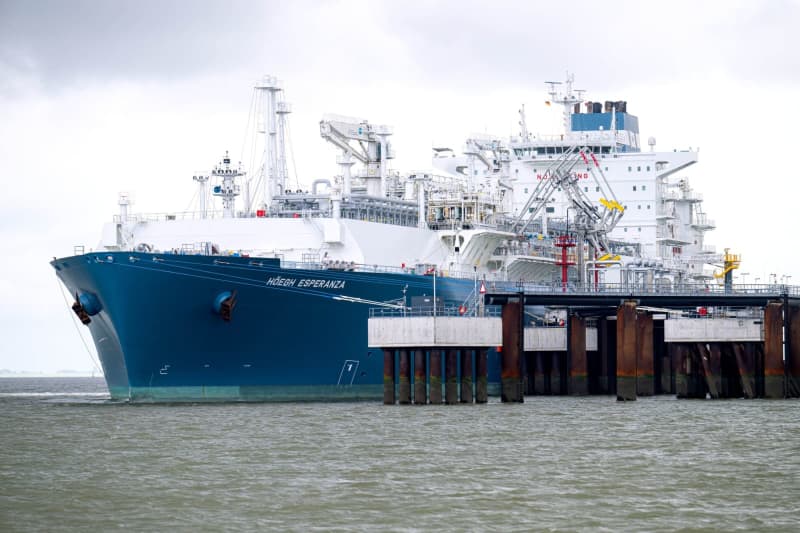On a recent Friday, the European Commission approved a significant subsidy package from Germany amounting to €4.06 billion (around $4.2 billion). This financial support is earmarked for the operation of four floating terminals designated for the import of Liquefied Natural Gas (LNG). These floating storage and regasification units were initially chartered in 2022 and are being managed by Deutsche Energy Terminal, which is a state-owned entity located on Germany’s North Sea coast. The decision by the European Commission is seen as a vital step towards bolstering Germany’s energy security amidst ongoing geopolitical tensions, particularly following the cessation of gas supplies from Russia due to the ongoing conflict in Ukraine.
The European Commission’s Vice President, Teresa Ribera, emphasized that the approved state aid plays a crucial role in maintaining a stable gas supply not just for Germany but also for neighboring countries that are affected by these circumstances. With the end of Russian pipeline gas imports, this move contributes significantly to reducing the European Union’s reliance on Russian fossil fuels. Furthermore, the subsidies are viewed as an investment in diversifying energy sources, thereby enhancing the overall stability and resilience of energy supplies across the region. The floating terminals are seen as an interim solution while permanent onshore LNG terminals are under construction.
The urgency of establishing these floating terminals arose from an acute energy crisis that swept through the EU, triggered by Russia’s substantial cutback in fuel exports to European nations. This crisis was exacerbated by the EU’s support for Ukraine, which led to retaliatory actions from Russia. To mitigate the impact of this reduced energy supply chain, Germany took proactive measures to secure alternative sources of natural gas. The subsidies approved by the European Commission are intended to alleviate the financial burdens associated with the floating terminals that were chartered during this turbulent period.
It is noted that Germany has committed to subletting these floating LNG terminals to other parties if the construction of the onshore alternatives is completed before the lease agreements for the floating units expire. This strategic plan illustrates Germany’s intent to not only manage its immediate energy needs but also to optimize the use of resources in alignment with broader EU energy policies. This commitment reflects the EU’s overarching goal of ensuring energy security while simultaneously moving away from dependence on a single source or supplier.
The European Union has stringent regulations governing state aid, requiring member states to adhere to specific rules when providing subsidies or tax incentives to businesses. The European Commission plays a pivotal role in monitoring compliance with these regulations to ensure that such financial support does not distort competition within the internal market. In granting approval for Germany’s LNG terminal subsidies, the Commission assessed the potential benefits and outlined the measures in place to prevent any adverse effects on market dynamics.
In conclusion, the approval of Germany’s substantial subsidies for floating LNG terminals represents a critical adaptation to rapidly changing energy circumstances in Europe. With the overarching goal of energy security in focus, this strategic initiative aims to diversify energy sources and reduce reliance on Russian natural gas. As the EU navigates the complexities of energy politics and supply chain sustainability, this subsidy approval underscores the bloc’s commitment to ensuring an uninterrupted energy supply while advancing toward more permanent solutions in the long term.

